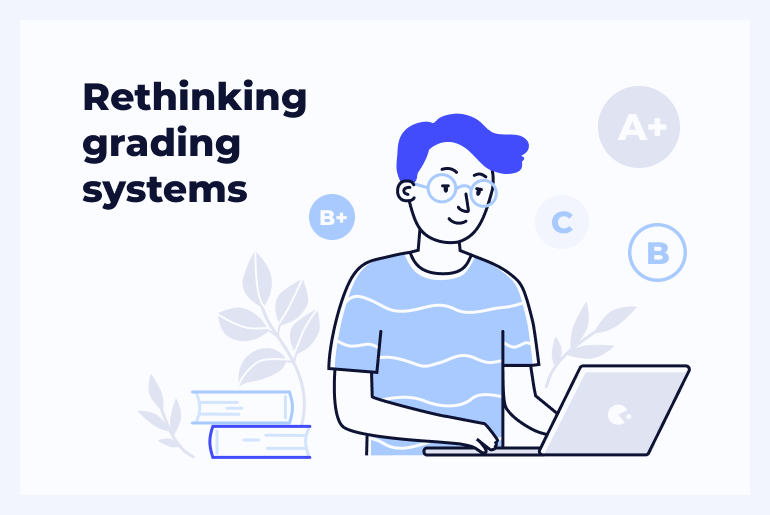According to the BBC news, “one in seven is paying for university essays.” To combat the booming economy of essay mills, quicker collective action must be taken to raise the standards for academic integrity, which the International Center for Academic Integrity (ICAI) is highly committed to.
Founded back in 1992, ICAI has been helping academic institutions increase integrity, foster communication, evaluate resources, and share advice on how to establish an open and trusting academic community.
The Unicheck team reached out to Teresa Fishman, PhD in Rhetoric and Composition, educator, consultant, and the former Director of ICAI, and asked her about how universities and colleges are facilitating students’ integrity, what teachers can do to discourage cheating, how academic integrity can be achieved in e-learning, and what can inspire students to adopt the mindset of a critical thinker.
Read on to see what she had to say.
Unicheck: During the decade you’ve been at the head of ICAI, what major changes in the state of academic integrity have you seen?
Teresa: While I was head of ICAI, I witnessed different sorts of trends. One was toward a greater focus on academic integrity as a focus for research as well as for programs and attention on campuses–a greater emphasis on community as a locus for addressing academic integrity concerns rather than looking at them as an individual failing. That’s a positive trend that we tried to nurture. On the other hand, we also found an increasing frequency of bespoke essays and outsourcing coursework. We hypothesize that the increases are caused, at least in part, by the confluence of two other trends: an increase in the use of text-matching software and increased facility of online “gig” commerce.
Unicheck: From your experience, what practices should an academic institution implement in order to facilitate student integrity?
Teresa: So, rather than specific practices, I would start by recommending that each institution first look at their current academic practices and the climate that exists. Once that’s been examined, it’s possible to look at needs and resources. For one institution, that might mean that needed changes might include a student-driven, student-written honor code; For another, it might mean comprehensive instruction in quoting, paraphrasing, summarizing and citing. For every institution, keys include making sure students know (or learn) best practices for citation, and have clear, useful guidelines, but how to get to those places will be different for each institution because they will all have different existing strengths and deficits.
Unicheck: Let’s say, a student chooses to cut corners and cheat on an academic paper. In this case, what measures would you recommend to a teacher to take?
Teresa: This is another question that depends so much on context! Here are some questions we’d need to answer before I could recommend action:
- What kind of “cheating” has been committed. Did the students cobble together uncited, paraphrased information from several sources? Did they cut-and-paste whole paragraphs? Did they pay someone to write the academic paper?
- We also need to know the level and experience of the student. Is she a 1st semester freshman? A 2nd-year MA student?
- We need to know if this is the student’s first time having been caught cheating? Or is it the third time.
Once we know these things, we can make informed decisions about whether to address the transgressions with instruction so that they know how to do the assignment correctly or if punitive measures are called for.
Unicheck: How can technology help bring positive changes to the state of academic integrity?
Teresa: Technology can be a big help in terms of identifying suspicious text. The problem, however is that when plagiarism detection software gets better, students find new ways to get around it. The most alarming new trend is that of contracting with someone else–via a “paper mill” or bespoke essay site–to create an entirely new paper but one which was not written by the writer. Because these essays are original, they won’t be in the plagiarism detection sites’ databases, though, depending on the service and who is hired to do the writing, they may still utilize some cut-and-paste plagiarism or recycle parts of other papers. There are other, constantly evolving techniques for evading plagiarism detection such as replacing letters with those of alternative alphabets (that look very similar) or replacing spaces between words with characters in white fonts–so that words run together (as far as the detection software is concerned) but still appear as if there are spaces. There is virtually no end to the ways to thwart software designed to detect plagiarism. This is one of many reasons that there is no substitute for teachers being familiar with their students’ writing and language.
Unicheck: What possible solutions do you see to fight contract cheating?
Teresa: Well, first, we have to define success in such a way that it is possible. There will likely never be a time that we eliminate cheating entirely. What we can do, though, is to create cultures and environments in which cheating is seen as something that is not ultimately worth it, both because it is antithetical to learning and because it is harmful to the community.
Unicheck: With online learning becoming the new normal, what transformations are necessary for traditional academic institutions to remain competitive? How can they encourage academic honesty among online learners?
Teresa: The most significant way in which we can encourage academic honesty in online (and other) classrooms is to limit class sizes and promote and support frequent and varied interactions–so that everyone in the class interacts with each other and has the opportunity to form true academic communities. Community turns out to be one of the most significant factor in students’ decisions about what is and is not acceptable. In other words, when students know each other, and feel responsible to each other and their instructor, they are more likely to seek assistance and guidance rather than turning to a contract cheating site. Institutional support for academic integrity is another key factor, and monitoring can amplify that message (when framed well) but small class sizes, frequent and varied assessments and interactions, and institutional support are all really key.
Unicheck: Checking submissions for originality undermines trust in students – this is one of the most common beliefs students share. Is there any chance to change their attitudes? What can make this happen?
Teresa: This is what I was alluding to (above). It’s true that when students are told that their submissions will be checked for plagiarism preemptively, it can have an adverse effect on the very feeling of community that is so important to establishing communities of integrity. Finding the right balance between assuming guilt and missing plagiarism is difficult, so I often adopt the position that I’ll assume that no one is plagiarizing, but if I receive a paper that appears not to be a student’s original work, I’ll be forced to check the whole class’s work in order to be fair to all. That does two things; It lets students know that we’re starting from an assumption of trust, and that I want to trust them. It also makes them responsible to each other, so that if one student chooses to cheat, it affects the way all of the students are treated. I then go on to explain that if a school becomes known as a cheating school, it has negative consequences for all of the graduates–current, future, and even past. If that happens, the value of all diplomas decrease, which makes it my responsibility to make sure that doesn’t happen. I then can ask their assistance and then reiterate that there are many more palatable courses of action than cheating.
Unicheck: What improvements can be made today to motivate students to be critical thinkers rather than test takers?
Teresa: This is perhaps the best question of all!
The fact is that the most important thing students do in college is to learn how to learn–which is one of the most important reasons that we must continue to care about academic integrity. Teachers must be clear with students that when they write a paper, the objective isn’t the paper, but their ability to write it. In other words, what we’re working on in college isn’t developing good papers, but instead, students who can think critically and then express themselves in rhetorically persuasive ways. Teachers have to make sure that their assignments develop thinkers and writers and to make it clear to students that that is the goal.




